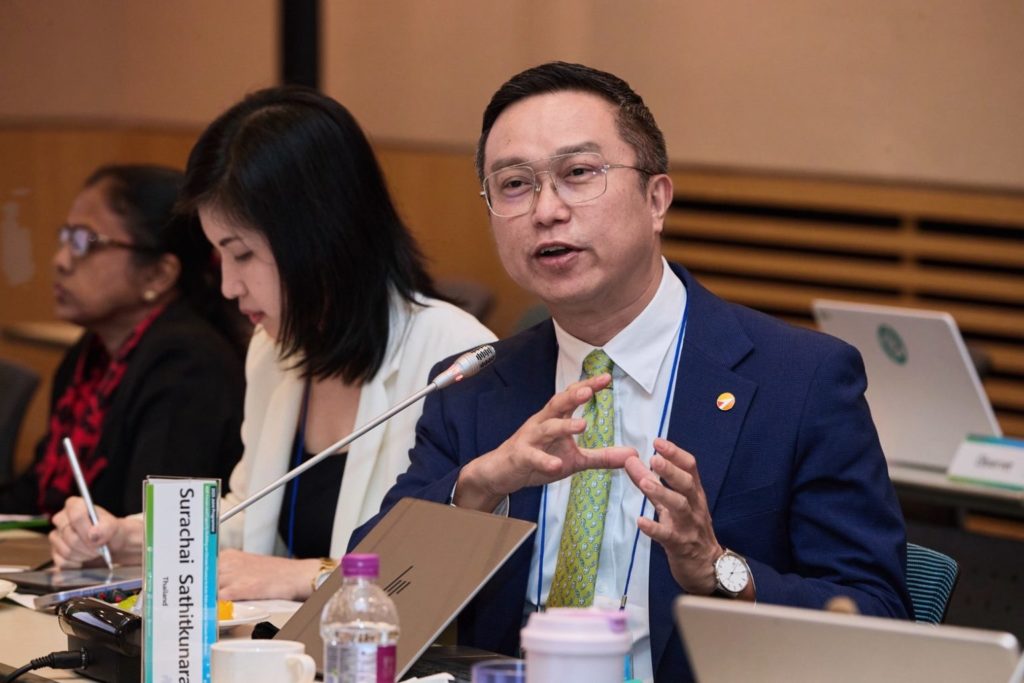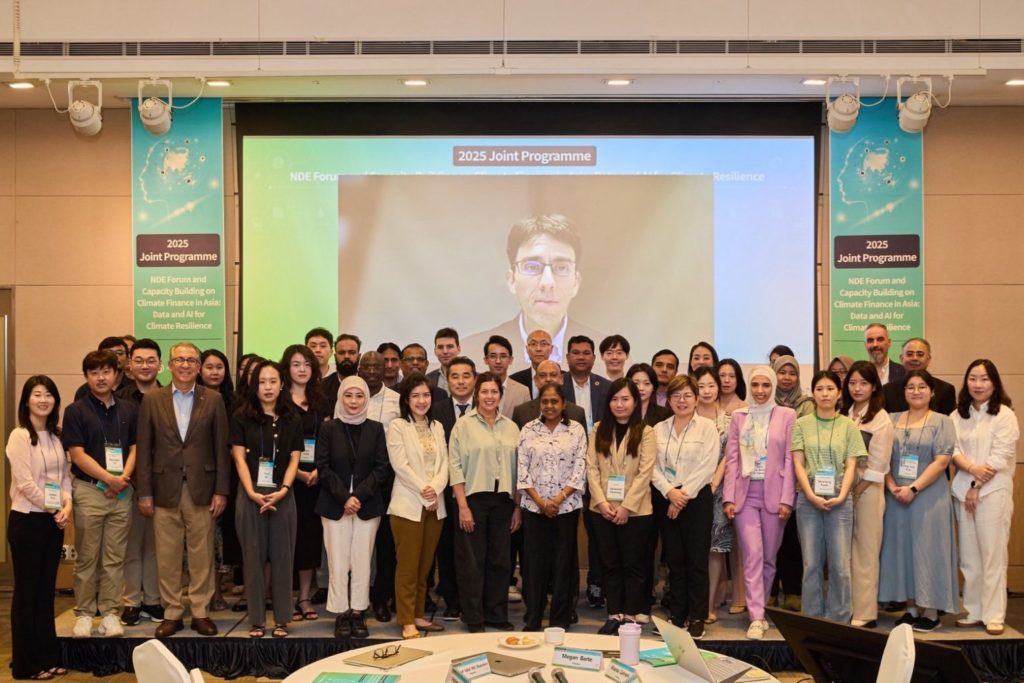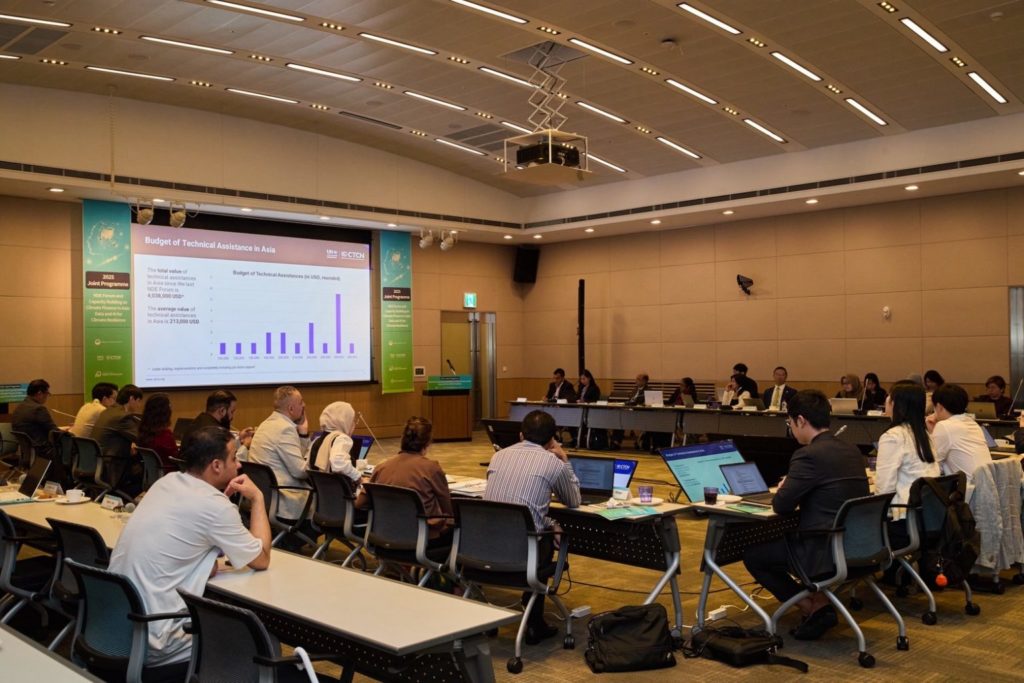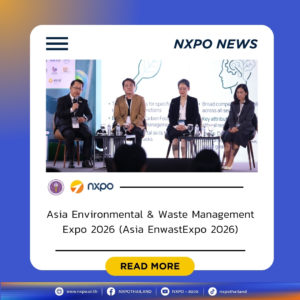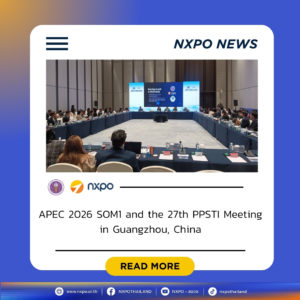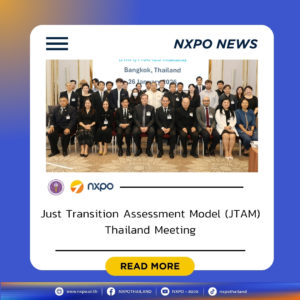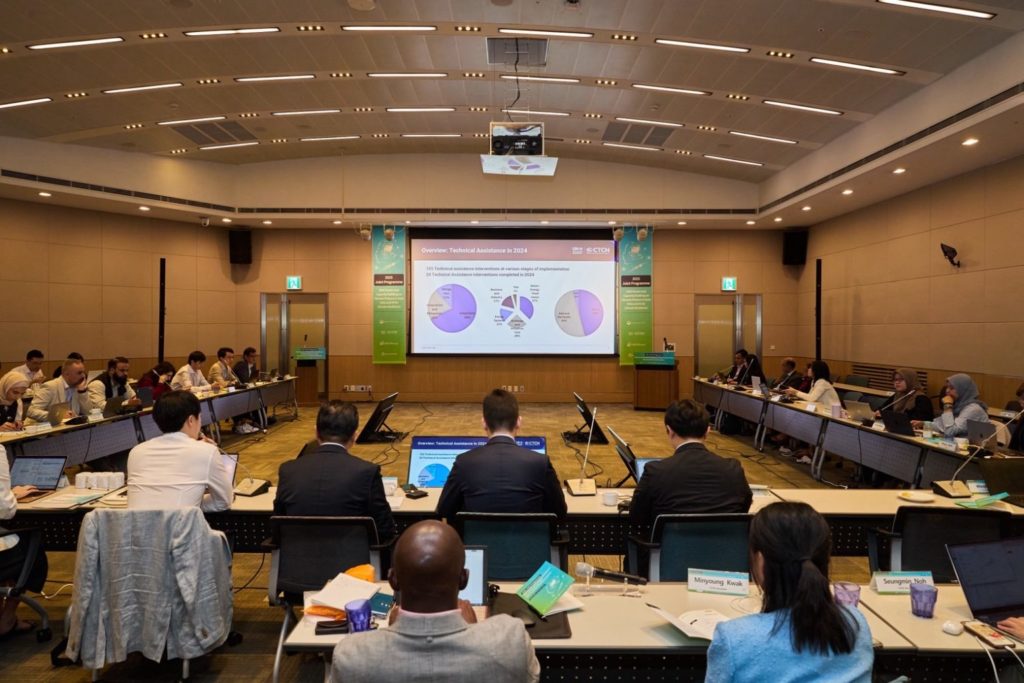
Dr. Surachai Sathitkunarat, President of NXPO, and Dr. Saravanee Singtong, Director of Sustainability Policy Division at NXPO, represented Thailand’s National Designated Entity (NDE Thailand) for climate technology development and transfer under the United Nations Framework Convention on Climate Change (UNFCCC) at the Joint Programme: NDE Forum and Capacity Building on Climate Finance in Asia: Data and AI for Climate Resilience, held on 1–3 September 2025 in Seoul, Korea.
The meeting was organized by the Climate Technology Centre and Network (CTCN), the National Institute of Green Technology (NIGT), and the World Bank, with participation from over 20 countries including Australia, Kazakhstan, Indonesia, and Malaysia. Also present were the Chairman of the CTCN Advisory Board, the President of NIGT, representatives from the UNFCCC Secretariat, and Korean AI companies. The forum served as a platform to share knowledge and strengthen collaboration through UNFCCC mechanisms and bilateral cooperation frameworks, such as the Korea International Cooperation Agency (KOICA) and international financial institutions.
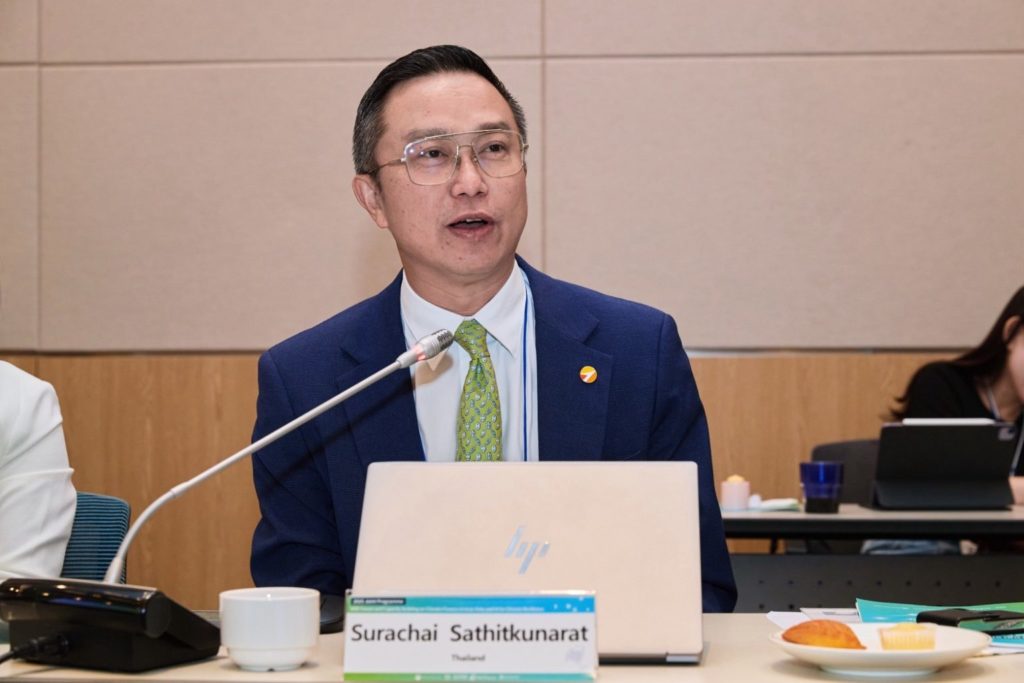
Dr. Saravanee noted that while discussions have been held on linking financial and technology mechanisms under the UNFCCC, and lessons have been drawn from each mechanism individually, there has not yet been a detailed assessments of budget utilization—such as through the Global Environment Facility (GEF) and the Green Climate Fund (GCF) — to truly establish the connection between the two mechanisms.
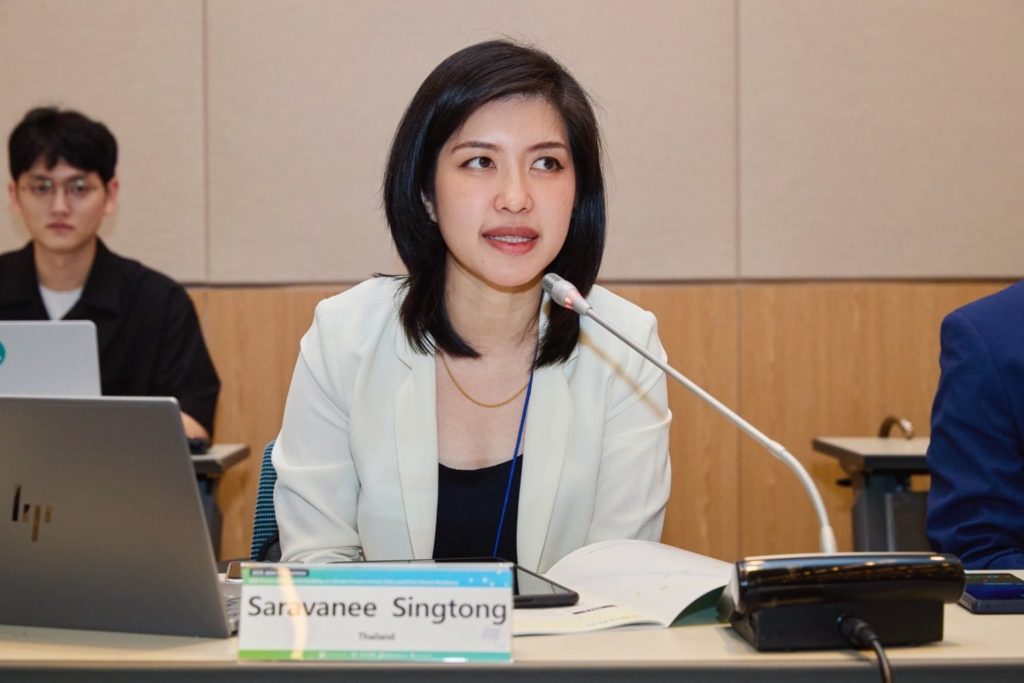
The meeting also emphasized sharing experiences and approaches to climate technology development, aligning CTCN support with Nationally Determined Contributions (NDCs). Discussions focused on advancing the use of data and artificial intelligence (AI) to strengthen climate resilience, while engaging financial institutions including the World Bank, GCF, ADB, and KOICA to design financial models linked with existing technology mechanisms. This integration aims to scale up and mainstream technology deployment. On 2–3 September, delegates also held discussions with Korean climate tech companies—including Next Save, Dynamic Industry, Aetech, and IWMI—to explore future collaboration under UNFCCC programs and other international mechanisms.
